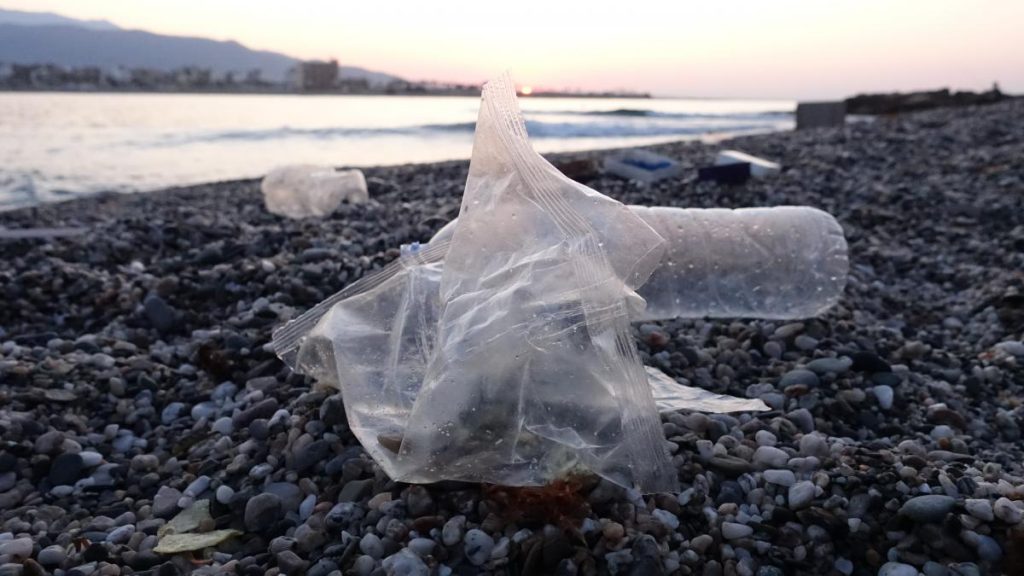
The United States Congress has the opportunity to pass a comprehensive bill to contain growing plastic pollution, making producers responsible for the material. Named “Law to Get Rid of Pollution by Plastics”, the proposal was presented last Thursday (25) by Senator Jeff Merkley (Democrat, Oregon) and by Representative Alan Lowenthal (Democrat, California), along with more than 90 members Senate and House.
If passed, it will be the first national law to phase out unnecessary disposable plastic products, including plastic shopping bags and Styrofoam containers for food. In addition to transferring the burden of managing plastic waste to the companies that produce it, the bill limits the amount of waste exported to developing countries.
“We are running out of time to avoid a future completely dominated by plastic. The United States has the responsibility and the power to turn the tide on this global problem and hold companies accountable for this crisis, before it’s too late, ”said Oceana actor, activist and board member Ted Danson. “The United States generates more plastic waste than any other country, but we have not yet passed a federal law to address this monumental threat to our planet,” he adds.
The proposal also provides for the protection of communities close to industries, through a moratorium on new facilities for plastic production across the country, and the guarantee that cities and states can continue to advance in the fight against plastic pollution. The country has several initiatives in cities, districts and states that have approved policies regulating disposable plastic.
Impacts on marine life
Scientists estimate that 15 billion kilograms of plastic reach the ocean each year. Just last November, Oceana found evidence of nearly 1,800 turtles and marine mammals that swallowed or entangled themselves in plastic in the waters of the United States between 2009 and early 2020. And 88% were animals of species listed as endangered or threatened, according to the Endangered Species Law.
“We need to face the plastics crisis now, and the Law to Free ourselves from Plastic Pollution does just that, by reducing plastic pollution at source,” says Oceana’s plastics campaign director in the United States, Christy Leavitt . “We know that the policies that regulate disposable plastic make a difference because we have seen this happen in many cities and states that started to act years ago. All of these efforts have led to this moment. We urgently need our elected federal representatives to build this support and pressure the industry to abandon its habit of using plastic and start making the switch to sustainable alternatives, such as reusable and refillable systems. ”
Brazil does not yet have federal law
In Brazil, there are state or municipal initiatives to reduce plastic consumption, but no national legislation that regulates the production or use of disposable and unnecessary plastic. The country is the largest producer of plastic in Latin America, with an annual production of seven million tons. Of this amount, three million tons are single-use plastics. There are about 500 billion disposable plastic items such as cups, cutlery, plastic bags, and packaging for the most diverse applications.
With low recycling rates, most of them accumulate in landfills, garbage dumps, but a very important portion goes to the environment. According to the study “An ocean free of plastic – challenges to reduce marine pollution in Brazil” , published in December by Oceana, the country Brazil is responsible for at least 325 thousand tons of these residues that are taken to the sea from land-based sources such as open-air dumps and inadequate disposal.
“There is an urgent need in the country for robust legislation, inspired by policies, laws and good international experiences, aiming to reduce the generation of preventable, problematic and unnecessary plastic waste”, defends Oceana Brasil’s plastics campaign manager, Lara Iwanicki. “On the other hand, companies must offer consumers options without plastic for their products and packaging, at a cost similar or less than the packaging used today”.
Lara Iwanicki recalls that the approach to reduce plastic waste needs to be seen as an opportunity for the development of innovative businesses, new technologies and markets that favor the reuse of packaging, a crucial part of the solution to pollution. Oceana is campaigning in Brazil to reduce marine pollution by plastics.
KNOW MORE
Oceana campaign in the United States to prevent plastic pollution